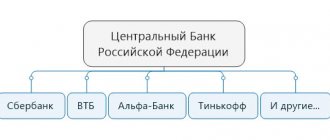Despite all the bills in force in our country, which control the work of government bodies and officials from all sides, they still find loopholes to violate the law. In order for the appeal sent to the official to be considered, and not to receive a banal receipt, you should know your rights and obligations, and also have the opportunity to write a complaint. In this article, we will look at what actions of an official you can complain about, and also tell you how to send a complaint to the prosecutor's office of the Russian Federation.
Reasons for complaint
People turn to the prosecutor's office for help when it seems that justice is missing. Officials sometimes take on responsibilities that are not within their competence or do not pay due attention to ordinary citizens. If a person knows his rights and obligations, then they must be fulfilled by government agencies, otherwise it is necessary to write a complaint.
But for every complaint there must be a reason; it is impossible to write a complaint from scratch. We will talk about several of the most popular complaint options below.
| Reasons for contacting the prosecutor's office? | ||
| № | Base | Explanation |
| 1 | Violation of work schedule | Each person officially employed in a government structure has his own work schedule, where there may be visiting days. Accordingly, if an official did not come to work on time or missed the appointment day without warning the registered citizens in advance, then this may serve as a violation. |
| 3 | Illegal actions | Refusal to consider an appeal or personally accept a citizen with his problem. |
| 4 | Bribe | A certain amount of money that is transferred to the official in exchange for what he wants. For example, a place in a kindergarten can be provided if you pay a bribe. It is necessary to recall that the fact of giving and receiving a bribe is punishable by criminal law. |
| 4 | Refusal to provide benefits | Certain categories of persons have benefits that the state must provide, for example, certain payments or other social measures. |
| 5 | Rudeness and rudeness | Every citizen who is in the performance of his work duties has no right to be rude and rude to patients |
These are the main reasons that may be the basis for transferring dissatisfaction to the prosecutor’s office for consideration. However, it is worth noting that each reason is considered individually. Often people turn to officials with a request to provide a place in a kindergarten or to build a playground, since children have nothing to occupy themselves during a walk. In this case, the basis will be a violation of legislation in the field of landscaping or education.
It must be recalled that there is no standard form that must be filled out for a complaint, so each person writes it in any form in compliance with a business format.
In response to your request, you were rude, threatened, or transferred data to third parties
Sometimes officials are prone to emotions and cannot control them.
Such behavior is a violation of the ethics of a public servant. Get accurate information about the person who sent you a response that contained rudeness or rudeness, and send a complaint through the electronic reception on the official website or by mail. Your personal data specified in the request (address, telephone number, etc.) was transferred to third parties. This is a direct violation of the protection of human and civil rights and freedoms when processing personal data, including the protection of the rights to privacy, personal and family secrets, in accordance with the Federal Law of the Russian Federation of July 27, 2006 No. 152-FZ “On Personal Data”.
If such a situation occurs, then it is necessary to contact Roskomnadzor with a statement in order to bring the culprit to justice.
If you are threatened with violence - Article 119 of the Criminal Code of the Russian Federation: Threat of murder or infliction of grievous bodily harm. If you receive threats, contact the police. Initially, you can call, describe the situation and follow the operator’s instructions. In addition, send an official appeal to the police via an electronic form, if possible attach a document or other evidence that confirms the threat.
How to submit a complaint to the prosecutor's office?
The prosecutor's office accepts complaints in all formats, so it can be submitted even without leaving home.
| № | Feeding method | Explanation |
| 1 | Personally | It is necessary to personally visit the prosecutor's office on the reception day. You must have two copies of the complaint with you and register both. |
| 2 | Online | Through the website of the prosecutor's office in the region. Through the website, a complaint can be submitted online; to do this, you must fill out a special form; if there is not enough space, you can attach a document to the attached documents. |
| Using the services of the Russian Post Office. In this case, an inventory of the contents of the letter must be added to the complaint and attachment. | ||
| Using a hotline number | ||
| Using a fax. |
It is worth warning that the consideration period varies depending on the method of filing; the countdown begins from the moment the complaint is registered with a government agency. Accordingly, if the method of transmission is mail, then you must wait for a written notification and it is from this moment that the time will begin; if we are talking about independent transfers, then it remains unchanged since the complaint is registered immediately.
Filing a complaint to higher authorities
The superior body is the governing institution or the official's manager. The law requires submitting documents in stages. If you submit them without going through one of the authorities, the documents will be returned to their destination.
This is the case with the prosecutor's office: an application for employees of the district prosecutor's office is submitted to the prosecutor's office at the regional level, then to the Prosecutor General's Office.
Before choosing a recipient, you need to make inquiries about the work of the department and its structure.
Terms of consideration
Having received a complaint from an individual or legal entity, the prosecutor's office is obliged to respond within the prescribed period of 30 days. However, some situations may delay consideration up to 2 months from the date of its transfer. The period is extended if the original time allotted is not enough, and is mainly used when the grounds of the complaint have resulted in serious proceedings and criminal cases.
Before extending the period for consideration of a complaint, an employee of the prosecutor's office must contact by telephone or by mail (electronic or regular mail) in order to notify about the extension of the period for consideration.
Is it possible to submit complaints and requests via the Internet?
Yes. And it's very convenient. Many government agencies now have online reception desks through which applications and complaints can be submitted. It’s best to find out whether the institution you specifically need has its own Internet reception (for example, the district or city prosecutor’s office).
A small life hack: if a particular authority does not have an online reception, then you can submit your application to a higher authority, it will be transferred to the one you need, and you will be notified about it. This will cause a slight increase in deadlines, but employees of lower departments will have more motivation to respond quickly and decisively, because this is “an order from above.”
What kind of complaint can you not expect a response to?
The complaint is not subject to response and in most cases simply returned to the sender if it:
- Anonymous - has no information about the person who transmitted it. Confidentiality is permitted if the message contains information about corruption;
- It is not written in Russian; unfortunately, not all specialists can correctly translate the text of the letter, so contacting the Prosecutor’s Office of the Russian Federation must be strictly in Russian;
- Dissatisfaction should not contain obscene language, insults or other things that are not allowed in a business format;
- It is strictly forbidden to ask questions regarding the personal life of an employee or state secrets.
If the complaint contains the above points, then there will be no response to it.
The most common unsubscribes
We list the most common replies from officials:
- You have not received a response to your appeal after thirty days, or you have only received a notification from a higher organization that the appeal has been forwarded for consideration “downstream”.
- You received a response to your appeal that a violation has been identified and will be eliminated in the future if funding is available and without specifying a time frame.
- You received an answer that does not allow you to understand what exactly is being said; everything is written in general phrases. Such a response may be “In connection with your request, an inspection was carried out, we took your opinion into account.” Often, the lack of substantive arguments, among other things, is also accompanied by a lack of explanation to which addressee and on what specific problem this response was prepared.
Expert opinion
Every person who holds a higher position and is on government support must comply with his duties. Otherwise, the official is removed from office, the above scheme is not surprising, and I would even say ordinary, but there is one thing. We have many officials in every city and it is impossible to assign a supervisory person to each of them who will monitor compliance with the law. That is why such control bodies should be our citizens, who are simply obliged not to follow the lead of officials, but to notify higher authorities about a violation.
Only through close communication between citizens and prosecutors can government bodies be made cleaner from negligent actions of officials or their inaction altogether. Therefore, everything depends directly on the citizens, who should help, and not give bribes and move away from their business, which led to the official.
If a person is very busy or cannot independently file a complaint due to his circumstances, this can be done remotely, which will allow us to report a violation of the law without leaving home.
Employees of the prosecutor's office will consider the complaint and if the grounds are truly supported by evidence, the official may face punishment from dismissal to arrest.
Prosecutor General of the Russian Federation Yuri Yakovlevich Chaika
Legal aspect of the issue
There are two ways to appeal actions: judicial and administrative
Contacting the authorities does not always lead to the desired results. And interested parties are forced to achieve their goal by appealing against decisions or actions that they consider illegal.
To whom and how to write a complaint is determined by regulations regulating the activities of a specific official or body. As a rule, this is a law or administrative regulation that supplements its provisions. For example, a system for managing the registration of rights to real estate was built in a similar way, including a provision on appeal commissions under Rosreestr. In the law on enforcement proceedings, the rules describing the procedure for appeal are combined in one normative act.
There are two ways to appeal:
- administrative procedure;
- judicial procedure.
The first option involves writing a complaint and sending it to a higher legal entity or authority. It is provided for by the law on the organization of the provision of state and municipal services; a similar document exists at the regional level in relation to services, actions or decisions of local officials. They describe the stages of filing complaints all the way up to the governor. As for the requirements for a complaint, we must not forget about the Law “On Citizens' Appeals”.
Common mistakes
Mistake No. 1: Submitting a complaint or other request using Russian Post services. The letter is sent without notification.
Comment: In order for the complaint to reach its addressee, it is necessary to send a letter in a custom format. This is necessary in order to know exactly when the letter will reach the addressee; this is why notification is needed. After receiving the complaint, the period established by law will begin to count. If the letter is sent without notification, it may not reach its addressee and there will be no possibility of accurately counting the deadline for a response.
Error No. 2: Sending or transferring original documents along with the complaint.
Comment : It is necessary to attach or transfer only copies of those documents that are necessary for further consideration to the complaint. And if the originals are needed for consideration, employees will contact the author and ask for the original. Otherwise, the originals may be lost, and the copies you have in your hands (not certified by a notary) will be powerless in the legislation.
Drawing up a complaint
Any complaint must contain a list of points necessary for its consideration
Below are document drafting schemes applicable to most cases of appeal for consideration of claims.
The complaint must include:
- The name of the body to which it is sent.
- Full name of the official or details of the body or institution whose actions are being appealed.
- Full name of the author of the complaint, place of residence, contact information (email and telephone number).
- The applicant's arguments about the illegality and groundlessness of the official's actions or inaction.
- List of copies of attached documents.
- Submission date and signature.
- A copy of the representative's power of attorney.
It is not necessary to attach documents, but their presence will speed up the procedure and increase the chances of a positive decision. Officials, seeing a decisive attitude and a well-founded position, tend to agree with people’s arguments.
The lawsuit must contain:
- Name of the court.
- Full name of the plaintiff, place of residence, contacts.
- Full name of the official whose decision is being appealed.
- Statement of circumstances.
- Links to legislation.
- Details of the decision of an authority or official (for example, a resolution of a bailiff).
- Requirements for the court (the court does not go beyond them, with rare exceptions, and their correct formulation is the concern of the applicant).
- List of attached documents.
- Signature and date of submission.
In civil and administrative cases, a set of copies is attached according to the number of participants in the case.
The claim is paid with a state fee. Its size is determined by the price of the subject of the dispute and the status of the applicant (citizens pay less than legal entities).
Procedure and deadline for filing a complaint
The legislation offers several ways to file a complaint:
- personal transfer or through a representative;
- by mail;
- sending via electronic services.
The papers are sent to the office. The copy is marked with acceptance. Documents are also accepted at the MFC (they act as a “single window”).
Postal services are effective provided that papers with an inventory and notification are sent. They will guarantee that the complaint “will not be lost.”
The electronic form of interaction is available to holders of electronic digital signatures. So they suggest filing lawsuits in the courts. It is prohibited to send applications without an electronic signature, with the exception of applications to the prosecutor's office and a number of other departments. For example, the President or the police.
The period for appeal depends on the case. For example, a complaint against a bailiff is filed no later than 10 days after he violated the rights of the interested party. Rules on deadlines can be simultaneously contained in specialized and procedural laws (for different categories of cases they are established individually). First of all, the provisions of the procedural code are taken into account.
The total term under the CAS is 3 months, if the case is considered in accordance with the Civil Procedure Code - 3 years (shorter terms are possible).
Common Questions
Question No. 1: What legislative acts can be referred to when filing a complaint with the prosecutor’s office?
Answer: There are not only legislative acts, but also the Civil and Criminal Codes, which regulate their work. To be specific, this is primarily a federal law:
- About the prosecutor's office No. 2202-1-F;
- On the procedure for considering appeals – No. 59;
- Civil Code No. 14 and Criminal Code No. 63.
This also includes instructions that regulate the consideration of citizens’ appeals No. 45. It is these legal and by-laws that can be used to contact the prosecutor's office of the Russian Federation.
Question No. 2: Do prosecutors have the right to consider a complaint for 1.5 months, when the period is 30 days?
Answer: Yes, this can happen. In addition, employees have the right to respond to a complaint, the consideration of which entails serious legal proceedings, the period can be extended to 60 days. However, before extending the review, it is necessary to warn its author about this.
Where should you submit your application?
You can understand which government agency should submit an appeal to by referring to Decree No. 498 “On additional measures for working with appeals from citizens and legal entities.” It approved a list of bodies and organizations that are responsible for considering appeals in certain areas.
The decree stipulates that applications submitted for the first time must be considered by local authorities in accordance with their competence.
For example, for clarification of tax legislation, you should initially contact not the Ministry of Taxes and Duties itself, but the Ministry of Taxes Inspectorate (it should relate to the territory in which the applicant has questions).
Information from the website of the Ministry of Taxes and Duties:
Electronic appeals from citizens (individual entrepreneurs) and legal entities received by tax authorities on issues of clarification of tax legislation, calculation and payment of mandatory payments to the budget in cases established by acts of the President of the Republic of Belarus, declaration of income and property by individuals are considered initially in the inspections of the Ministry of Taxes in the regions , cities, districts in cities where the questions set out in the appeals arose (list of email addresses of the Ministry of Taxes Inspections by district, city, district in the city).








